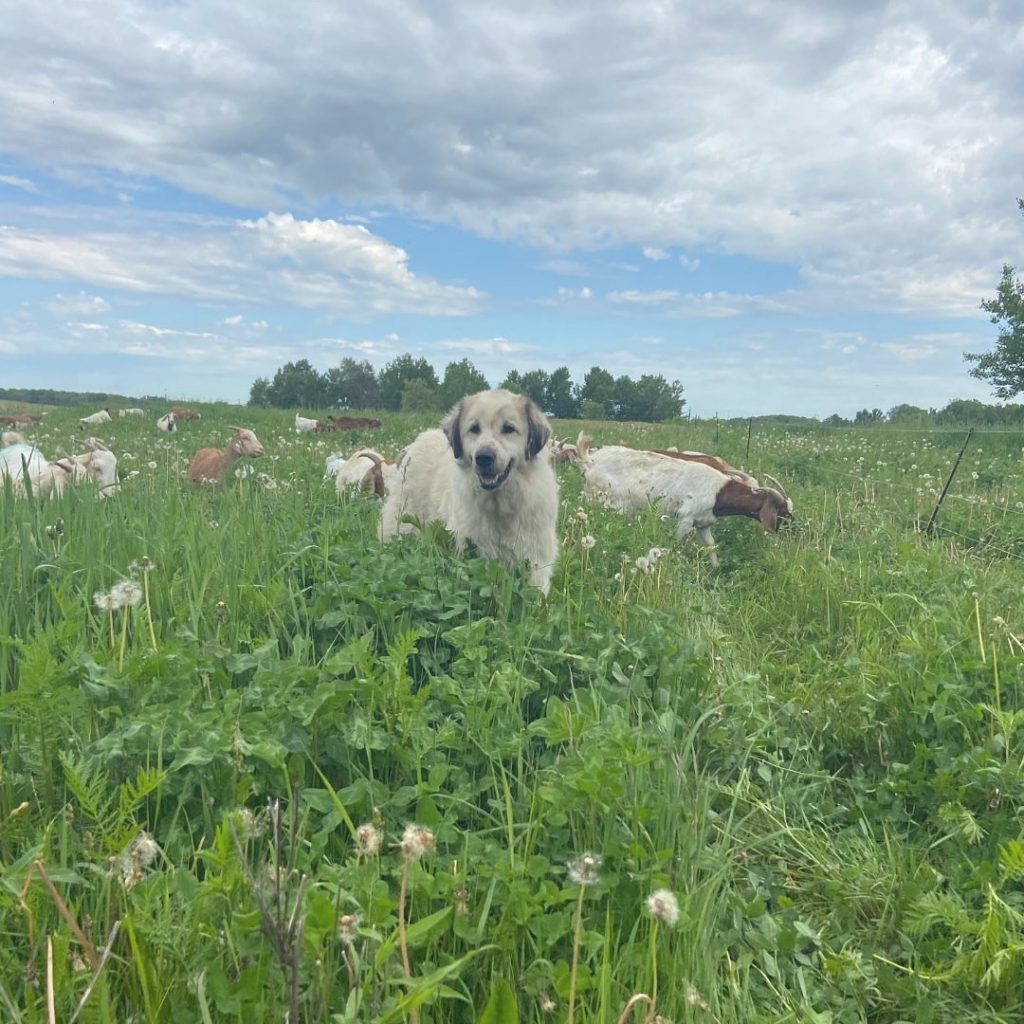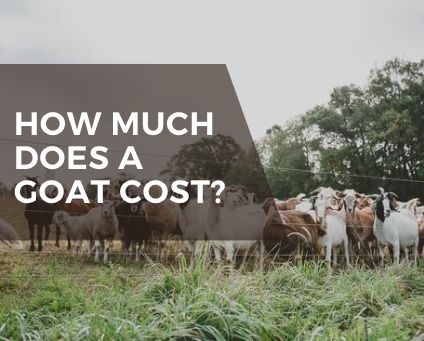When starting to raise meat goats, it’s natural to want to know how much goats cost. However, there are a lot more expenses you’ll need to consider when starting a goat farm.
Many of these factors include start up costs and ongoing costs associated with raising goats. These expenses for starting a goat farm are dependent on where you’re located and any existing buildings or fences on your land or farm.
This blog post will cover the basic items needed for raising goats, including the cost of goats, so you can build a realistic budget before you get started raising your goats.
Table of contents
Factors influencing the cost of raising goats
Beyond knowing how much a goat costs, here are the factors to take into account for the overall cost of raising goats:
- Goat barns, shelters or enclosures
- Water tanks or troughs
- Goat hay or feed
- Goat minerals
- Goat veterinary care

How much does a goat cost?
Many interested in raising goats want to know right away: “How does a goat cost?” The cost of a goat will vary, ranging from $150 to over $1,000 for a breeding do or buck.
In our area, the upper Midwest, breeding goats will often run $300-$400 per head, more for registered or show goats. Breeding bucks will typically run higher than does. The price of goats is often dependent on your region as well.
Factors that influence the price of goats:
There are many factors that can influence how much a goat costs, including:
- Genetics
- Breeds
- Registered or unregistered breed
- Show stock
- Terminal or wether
- Age: Kids or ready to breed
- Purpose: Commercial or show stock
In my experience as a commercial meat goat farmer, genetics are probably the most important factor. The farmer should have records or documentation of genetic lines based on desired traits such as body composition or parasite resistance. These records can be simply recording data or performance testing done through a third party, such as a university pasture performance testing trial.
How much does a goat cost in my area?
While livestock markets, or sale barns, are typically for terminal animals, they can still serve as a benchmark for determining going rates for determining how much goats costs. Keep in mind sales at livestock barns are typically for meat and are often priced lower than breeding animals.
Here are a few ways to find these goat prices in your area:
- Talk with other farmers in your area or region
- Google terms to use “sales barn,” “livestock auction,” “livestock market” near me or with your state. Most sales barns or livestock markets will also list regular sales reports where you can see a sample of sales prices for goats and sheep. You can then look for prices based on the age, size or type of goat.
- Two examples of auctions in our area include: Fennimore Livestock Exchange in Fennimore, Wisconsin, and Central Livestock Association in Zumbrota, Minnesota
- Texas A&M Goat Market Report covers one of the largest meat goat markets in the U.S.
- USDA Goat Market Reports, while this is a limited listing there are reports to look at
- Look for special goat sales online. Often these sales will list the final sales prices for the goats sold at the sale. Note these sales often are targeted to show stock and will be higher priced then what you might find elsewhere.
- Goatzz.com – a website to buy and sell goats
- Goat Rancher Magazine – breeders directory
Other cost factors to consider when starting to raise goats include:
Goat barns, shelters or enclosures
Barns are great, but not necessary as you’re getting started raising goats. Calf hutches, metal huts or three-sided shelters can be good options for providing your goats cover from extreme elements.
You can get price estimates for these type of structures through Craigslists, online auction sites, or even from farm supply stores.
Goat water tanks or troughs
You’ll need a low water stock tank that goats of most sizes can reach into, usually about 1 foot high. Price estimates can typically be found by looking at local farm supply stores or farm supply co-ops.
Goat hay or feed
You’ll need to consider costs for feeding your goats. Goats can often be fed just hay. Grain is often not necessary, but can be fed depending on your goat herd goals. Often dairy goat herds may require a higher, and more consistent level of nutrition as compared to meat goat breeds.
You can get goat hay or feed price ideas from online listings like Craigslist, Facebook Buy/Sell groups, farm supply co-ops or farm stores.
Goat minerals
Price your goat minerals out by the bag. A good source for goat minerals would be a local farm supply store or even farm supply/feed co-op. If the co-op doesn’t have a retail store, just call and as if they sell or can get 40-50 lb. bags of goat mineral and get pricing. Learn more about goat minerals here.
Veterinary care and medicine
Eventually you’ll need to have basic veterinary medicine for your goats on hand. Depending on your goat herd’s needs you may need to consult a veterinarian or have them do a farm call. However, these costs may not be as necessary for initial planning purposes.
Other local resources
Find other goat farmers in your area or seek out your local agricultural extension agent to help find realistic sources for building a budget for raising your goats.

LEAVE A COMMENT
Comments